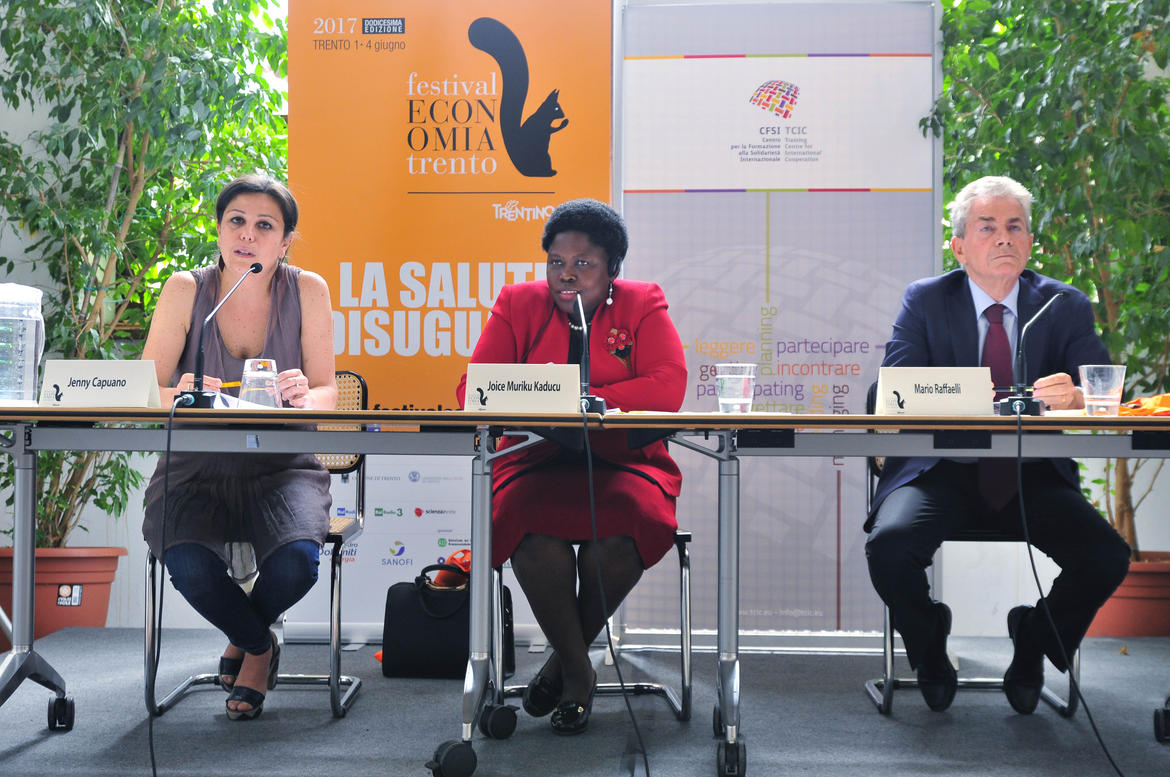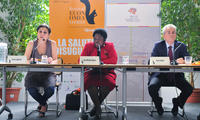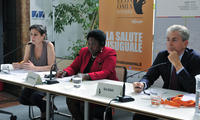
Health is multidimensional, meaning that is is more complex than simply the absence of disease. With economic and social factors influencing health, it is important to adopt a holistic approach to human well-being. The government of Uganda recognises that there is a need to see health holistically and has therefore guaranteed fair treatment in healthcare to its citizens. For Uganda, and many other African nations, it is important that not only the government utilises this kind of approach, but that international aid organisations and distributors recognise the need to see healthcare complexly and value the human resources available in Africa. During the debate, there was also an emphasis placed on the importance of including women in the process of planning care disbursement.
Jenny Capuano, Director of Centro per la Formazione alla Solidarietà Internazionale in Trento, explained that for aid organisations it is important to consider the many possible dimensions of inequality that could be present in a state and while the discussion is about Africa, these dimensions also apply elsewhere. She said that she always tries to be mindful of social groups that are left behind in policies, of gender inequalities, ethnic backgrounds (indigenous and migrant communities specifically), and the inequalities that can exist between generations of the same group. They use their awareness of these inequalities to build fairer, more just societies.
With unique challenges present in every state, it can be challenging for governments to find the right fit for healthcare to meet the needs of their population. Joyce Moriku Kaducu, the Ugandan Minister for Primary Health Care, discussed the challenges that Uganda has faced in trying to provide adequate, fair coverage for all citizens. Their solution, given their limited revenue to fund healthcare coverage, was to decentralise. They empowered more local authorities that better knew the specific needs of their area and incorporated other fields into their healthcare coverage, taking a multi-dimensional approach that reinforced the intention of the national government.
Many of the challenges faced by the Ugandan government are faced elsewhere on the African continent and around the world, making the Ugandan case one that is interesting to study because of their novel approach to healthcare. By viewing health as multidimensional, they are less likely to reproduce the inequalities that they are trying to combat. They place an emphasis on the role of women and examine the patterns of inequality that may only be alleviated through a multidimensional approach that includes resources in other fields.
Web: http://2017.festivaleconomia.eu
Twitter: @economicsfest
Facebook: https://www.facebook.com/festivaleconomiatrento/
















